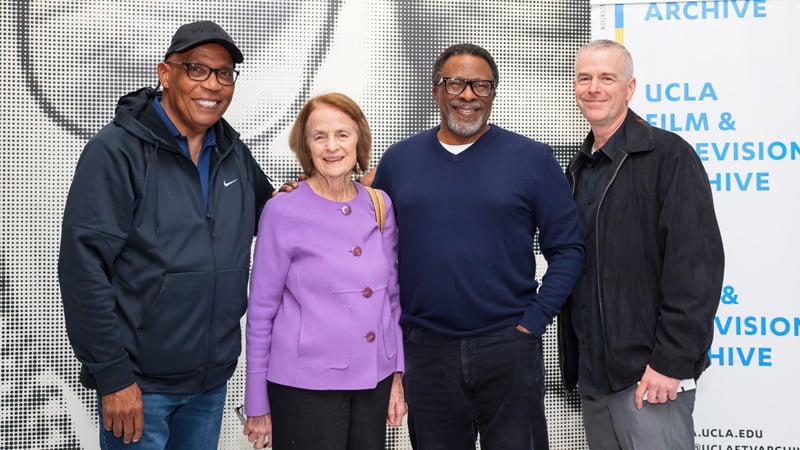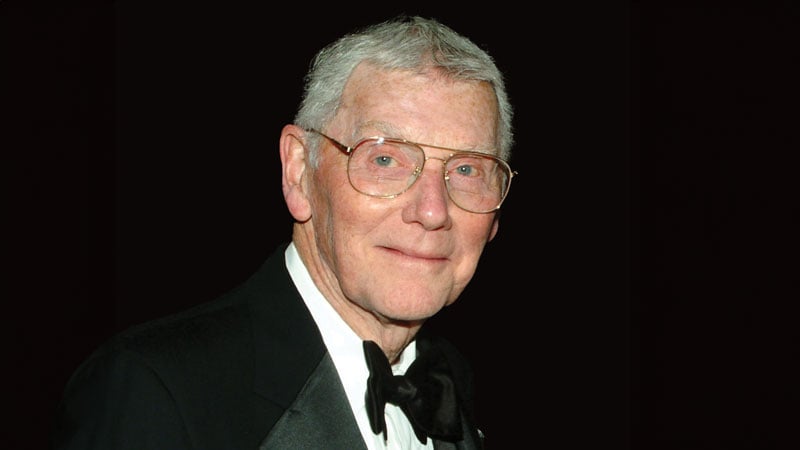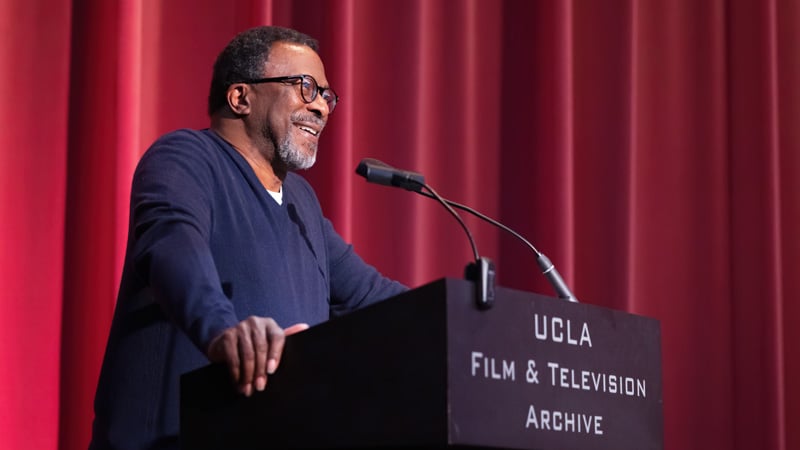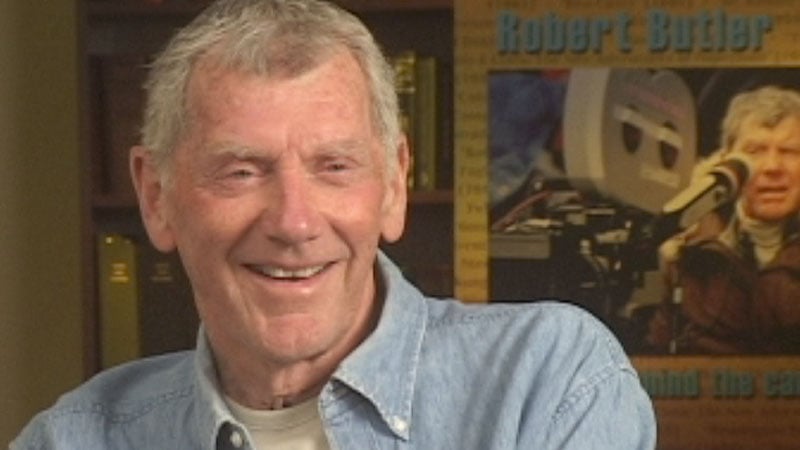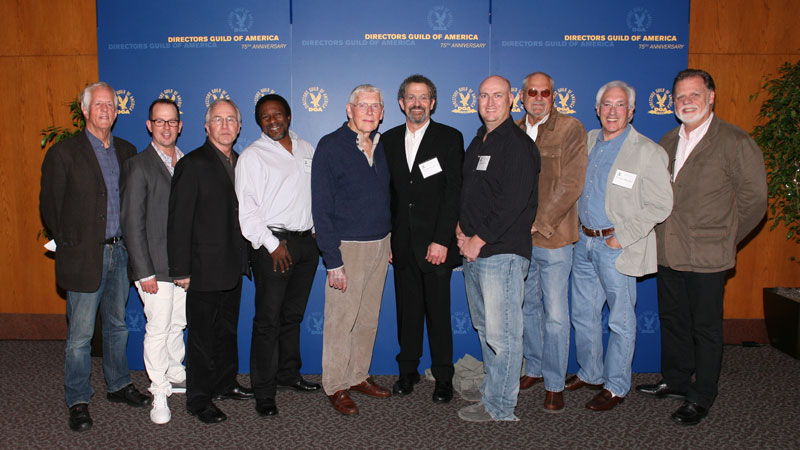Butler Tribute photos courtesy of SMG Photography/UCLA Film & Television Archive
Few Directors have changed the face of television as much as Robert Butler. A DGA member since 1959, his pilots established the look and feel of several seminal series including Hogan’s Heroes, Batman and Star Trek.
On April 13 the DGA and UCLA Film & Television Archive hosted the special event, From Batman to Hill Street Blues: A Tribute to Director Robert Butler. DGA members and other television lovers gathered in the Billy Wilder Theater in Westwood’s Hammer Museum for this event that featured a screening of Butler’s 1966 pilot for the series Batman, and his 1981 DGA Award-winning pilot, “Hill Street Station,” of the series Hill Street Blues.
The evening began with a welcome from UCLA Film & Television Archive John H. Mitchell Television Curator Mark Quigley, who spoke briefly about the program and UCLA alumni Butler’s relationship with the archives before turning the stage over to DGA-Award-winning Director Thomas Carter for an introduction to the screenings.
“We're here tonight to pay tribute to one of the coolest cats ever to direct television,” said Carter, who gave a brief recap of Butler’s biography and some of his illustrious directorial credits, as well as his dedication to the Guild. He quoted Butler’s speech when he was honored with the DGA's Robert B. Aldrich Service Award in 2001 and said, “I believe that what we storytellers do is rocket science. In the working quarters of our madhouse, I always saw how I had somehow landed in the most rewarding rat race of them all.”
Carter spoke about the friendship he would develop with Butler over the years and recalled watching him direct when he was a young actor working on the same lot.
“I used to slip into the Hill Street stage and watch Bob shoot whenever I could. He didn't know me and I never introduced myself. He was a tall guy with a big presence on set, ‘Be big boys!’ he said to the crew, exhorting them to feed off the enthusiasm he was exuding. There seemed to be this joy and confidence to what he was doing. He loved the madhouse of production. Some Directors like me love the editing room. He loved the madness of the set. He loved distilling the cacophony of production into the finely crafted frames that he constructed. He had become an extremely economical filmmaker and I always marveled at how much information he could get into each shot. You'll notice that again as you watch Hill Street Blues tonight.”
On April 14, audiences were invited back to the theater for a screening of Butler’s feature, Night of the Juggler, the story of a tough, New York City ex-cop relentlessly searching for his kidnapped teenage daughter who is held by a twisted psycho after mistaking her for the daughter of a wealthy businessman.
Butler's pilots established the look and feel of several seminal series including Hogan’s Heroes, Batman and Star Trek. His 50-year career began in 1959 directing popular shows such as The Twilight Zone, The Dick Van Dyke Show, Gunsmoke and The Fugitive. He would go on to helm nearly 100 other projects including Remington Steele, Hill Street Blues and Moonlighting. He won DGA Awards for Outstanding Directorial Achievement in a Dramatic Series twice: In 1973 for his “Dust Bowl Cousins” episode of The Waltons, and in 1982 for “Hill Street Station,” the pilot for the series Hill Street Blues. He was also recognized by the DGA with nominations for his work on The Blue Knight in 1974 and Lois & Clark: The New Adventures of Superman in 1994.
Butler served 11 consecutive terms on the DGA National Board starting in 1985, including two terms as Fifth Vice President. He also served on the Western Directors Council as a member or alternate for 16 terms between 1974-2005, as a trustee of the Directors Guild Foundation from 1988 to present and on nine Guild Negotiating Committees between 1977 to 2014. For his service to the Guild, Butler was recognized with the Robert B. Aldrich Service Award in 2001. For his unparalleled influence in television, in 2015 he and fellow Director James Burrows received the DGA’s inaugural Lifetime Achievement Award for Distinguished Achievement in Television Direction.
